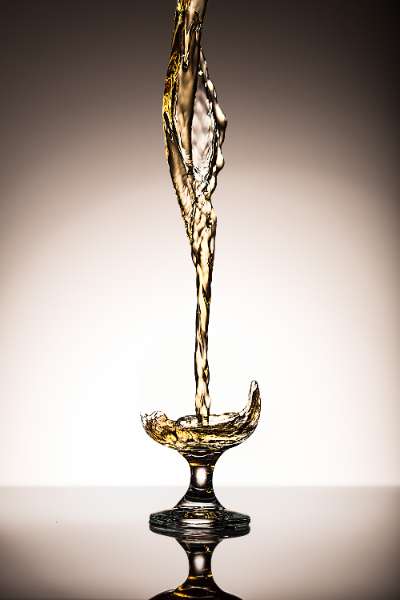Reduces Stress
Between work, family, and everyday stresses, you deserve a break. If you are feeling stressed, a glass of whisky can take off the edge. Alcohol is known for calming the nerves. This is extremely beneficial for people with high stress or anxiety. However, alcohol should not be used as the only way to de-stress. Relying on alcohol as a way to calm your nerves can lead to further anxiety if abused.
Whisky Fights Cancer
Although it should not be used as the only treatment, research shows whisky can help fight cancer. Whisky contains ellagic acid, which helps absorb rogue cells in your body. This acid is also found in fruit and wine; however, it is found in higher levels in whisky.
Whisky has as many antioxidants as wine. It contains more ellagic acid (the same antioxidant found in wine) as wine, which helps absorb rogue cells in the body, according to Jim Swan, the celebrated whisky industry consultant dubbed the "Einstein of whisky" at a medical conference in 2005. However, it should be noted that the same acid is easily found in fruit.
Whisky Lowers Risk of Heart Disease
Separate studies in the European Journal of Clinical Nutrition, Harvard University, and the European Heart Journal all come to the same conclusion: A moderate amount of alcohol—a maximum of seven small glasses of whisky a week—will reduce to some degree the risk of heart disease and heart failure. The European Journal study especially, led by the Rowett Research Institute in Aberdeen, is the most relevant and interesting. They measured antioxidant levels in a group of nine men after they drank wine, aged single malt, and "new spirit" (alcohol just out of the still). They found that the single malt provided the largest concentrations of antioxidants.
Whisky Helps to Promote Weight Loss
Want to keep drinking but also lose weight? Or you want the drink that goes well with your diet? This is good news for people who still want to have a good time and keep some kilos off.
Whisky contains absolutely no fat, and barely any carbohydrates or sugar. That makes it a better choice for diabetics than most other alcohol, as it will barely change the levels of blood glucose. The previously mentioned Harvard study also finds that alcohol in moderate quantities might even protect against type-2 diabetes. Whisky is also gluten-free, due to the distillation process. When you sample a really sweet whisky, most of that taste comes from other oils and compounds in the whisky, not sugar. This applies even to whiskies with artificial colouring from caramel (yes, that happens even with high-end single malts), which adds an imperceptible amount of sugar.
Whisky is Good For Colds
It’s been known in Scotland for a long time, but whisky does help fight colds (even if just a little bit). Everyone here knows that hot toddies - whisky mixed with hot water, lemon, and honey can be quite good for you (add spices for flavouring, if you like). The science behind it, according to Dr William Schaffner, Chairman of Preventative Medicine at Vanderbilt University, is that the alcohol dilates blood vessels, making it easier for mucus membranes to deal with the infection.
It's the Secret to Long Life
Drinking whisky can even lead to a long life. Grace Jones, one of Britain's oldest women, attributes her ripe age of 110 to drinking whisky every night for the last 60 years. Her whisky of choice, by the way, is the Famous Grouse blend. Who can forget this story?
If you're looking for the best bar in Newtown, Sydney NSW, to enjoy the finest whisky, wine and beers with your friends and families, visit Webster's Bar today!
sources: whiskyloot.com, forbes.com



































